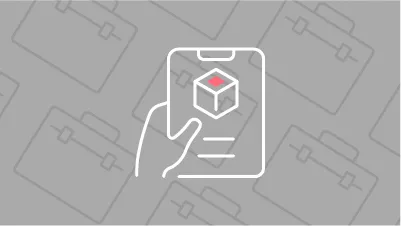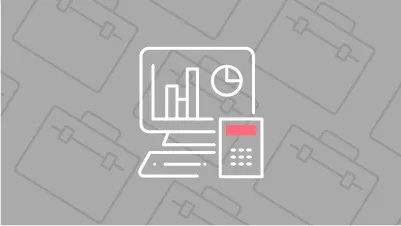All students are required to bring their own notebooks for lessons. You may refer to the required technical specifications for notebook HERE.
| REGISTRATION PERIOD APPLICATION CLOSED |
|||
| COURSE DATE | 20 Apr 2026 - 15 Oct 2028 | COURSE DURATION / FREQUENCY | 3 hours/session (3 days/week) |
| MODE OF LEARNING | Facilitated Learning (Face-to-Face/ Online Synchronous) and Asynchronous E-Learning | COURSE VENUE | Temasek Polytechnic |
Our part-time Diploma in Business Practice (Human Resource Management and Psychology) is crafted for mid-career professionals, providing essential skills in competitive business strategy and human resource management. You will gain expertise in navigating HR policies within the legislative framework and performing insightful market trend analysis to stay relevant and strategic.
The curriculum emphasises effective people and talent management, preparing you to foster a positive workplace culture and enhance employee engagement. Closely aligned with the Skills Framework for HR and the Institute for HR Professionals’ Body of Competencies, this programme ensures your training is both relevant and impactful.
By the end of the programme, you’ll be ready to tackle HR challenges and lead strategic initiatives that drive organisational success.
| Subject Code | Subject | ||
|---|---|---|---|
| GBS3001 | Decision-Making in Human Resources
This subject focuses on effective problem solving and decision-making skills in the workplace through the application of critical thinking, logical reasoning, and scientific methods. It aims to provide students with the knowledge and skills in cognitive sciences so that they can define and systematically develop solutions for a wide range of potential problems in an agile workforce. Students will also be taught to recognize common pitfalls and biases in decision-making and to apply appropriate decision-making tools to help them improve the quality of their decisions. |
||
| GBS2001 | Counselling Psychology in the Workplace
This subject provides an introduction to basic counselling principles and skills, and their application in the workplace. Students will be equipped with the fundamental theoretical and practical skills used in counselling, and about the counselling process that can enhance their interpersonal skills. They will also discuss some of the main perspectives and approaches in counselling, and explore issues that influence the counselling process, including ethics and working with diversity. Finally, students will also learn about how counselling principles, skills, and approaches may be applied to handle critical issues in workplace settings. |
||
| GBS2002 | Workplace Wellness
This subject focuses on increasing the awareness of the theoretical, empirical and clinical aspects of wellness in the workplace. It will examine the impact of emotional and behavioural factors that affect the prevention, onset, duration, and recovery of physical and mental health. This subject aims to equip students with an in-depth knowledge of workplace wellness, so as to enhance and promote holistic wellness in the workplace. |
| Subject Code | Subject | ||
|---|---|---|---|
| BCBS001 | Principles of Management
This subject covers the key management functions of planning, organising, leading and controlling. It addresses the impact of environmental factors that affect business and the relevance of corporate social responsibility in an organisation. It emphasises the roles, responsibilities and challenges faced by supervisors/managers in an organisation. |
||
| BCBS003 | Organisational Behaviour
This subject provides participants with an understanding of the key determinants of human behaviour, at both the individual and group levels, in an organisation. It aims to develop the ability to use organisational behaviour concepts to improve personal, interpersonal and group interaction skills. Some of the topics are perception, motivation, reinforcement theory, group dynamics and conflict management. |
||
| BCBS009 | Learning & Talent Development
This subject focuses on learning and talent development concepts and practices to develop and enhance workforce capabilities and competencies. The subject covers learning needs analysis, design, implementation and evaluation of a learning programme and career development. An understanding of these concepts will help students understand the importance of learning and talent development to strengthen individual and organisational performance. |
| Subject Code | Subject | ||
|---|---|---|---|
| BCEC002 | Business Economics
This is a subject to equip students with the fundamental principles of economics for understanding the business environment. Students will study the various aspects of the product market: demand and supply, consumer theory, production and cost, market competition, market power, product differentiation, firms’ strategic behaviour and the macroeconomic environment. |
||
| BCAF004 | Management Accounting & Finance
This subject covers the general framework of the financial and cost management processes. It focuses on the use of accounting information for management planning, control and decision making through the understanding of costing and budgeting concepts. |
||
| BCMK001 | Marketing Principles
This subject provides an introduction to marketing concepts and practices. It covers the marketing process and tools including product, pricing, distribution and promotion. An integrated approach will be employed to develop a range of skills such as strategic thinking, presentation and personal selling which are needed to sense, serve and satisfy customer needs. |
| Subject Code | Subject | ||
|---|---|---|---|
| BCCM003 | Reports & Business Communication
This subject will help students learn the written communication skills that are vital for their success at the work place. They will learn how to prepare, plan and write investigative reports and present information relevantly and succinctly using appropriate visuals. They will also be taught to write appropriate emails, memos and letters for inter-office and intra-office communication. |
||
| BCCM004 | Oral Presentations & Meeting Skills
This subject will help students develop effective oral professional communication skills that are essential in their working lives. They will learn how to plan, prepare and deliver oral presentations that are professional and audience-centered. In addition, students will learn the skills of conducting themselves professionally in a meeting. |
||
| BCBT002 | Business IT & Applications
This subject covers fundamental computing and data analytics skills for businesses. A strong emphasis is placed in exposing students to office productivity tools, which can aid in decision making as well as solving business problems through data manipulation, modeling and visualisation. |
Modes of Assessment
The assessment would be based on coursework components such as tests and assignments.
For more information on course fee / schedule, or to apply,
Career Opportunities
Upon completing the part-time diploma course, graduates can look forward to taking up positions such as administrative executives in private and public sectors, Employee Experience/ Relations Executives, Learning/ Organisation Development Executives, Performance/ Rewards Executives, Talent Attraction/ Management Executives.
Entry Requirements
| ‘O’ Levels | At least 3 ‘O’ Level passes AND 1 year of relevant working experience |
| OR | |
| Higher Nitec | GPA ≥ 2.0 |
| OR | |
GPA ≥ 1.5 AND 1 year of relevant working experience |
|
| OR | |
| Nitec | GPA ≥ 3.5 |
| OR | |
GPA ≥ 3.0 AND 1 year of relevant working experience |
|
| OR | |
| Higher Nitec in Technology | GPA ≥ 2.0 AND 1 year of relevant working experience |
| OR | |
| Higher Nitec in Service | GPA ≥ 2.0 AND 1 year of relevant working experience |
| OR | |
| Nitec in Technology | GPA ≥ 3.5 AND 1 year of relevant working experience |
| OR | |
| Nitec in Service | GPA ≥ 3.5 AND 1 year of relevant working experience |
| OR | |
| WSQ Qualification | Relevant WSQ Qualification with 1 year of relevant working experience AND WSQ Workplace Literacy Statement of Attainment (SOA)(Level 6) AND Workplace Numeracy Statement of Attainment (SOA)(Level 6) |
| OR | |
| Without relevant academic qualifications | At least 2 years of relevant working experience |
Applicants who do not meet the entry requirements may be considered for admission to the course based on evidence of at least 2 years of relevant working experience or supporting evidence of competency readiness. Suitable applicants who are shortlisted may have to go through an interview and/or entrance test. The Polytechnic reserves the right to shortlist and admit applicants.
Course Contact
- Mainline 67881212
-
Monday - Thursday: 8:30am - 6:00pm
Friday: 8:30am - 5:30pm
Closed during lunchtime, 12:00pm - 1:00pm
and on weekends and public holidays. - https://www.tp.edu.sg/tsa
-
Temasek SkillsFuture Academy (TSA)
Temasek Polytechnic
East Wing, Block 1A, Level 3, Unit 109
21 Tampines Ave 1
Singapore 529757
Temasek Polytechnic reserves the right to alter the course, modify the scale of fee, amend any other information or cancel course with low enrolment.






/D in Business Practice (Business Administration)_tn.webp)
/D in Business Practice (Logistic Management)_tn.webp)




